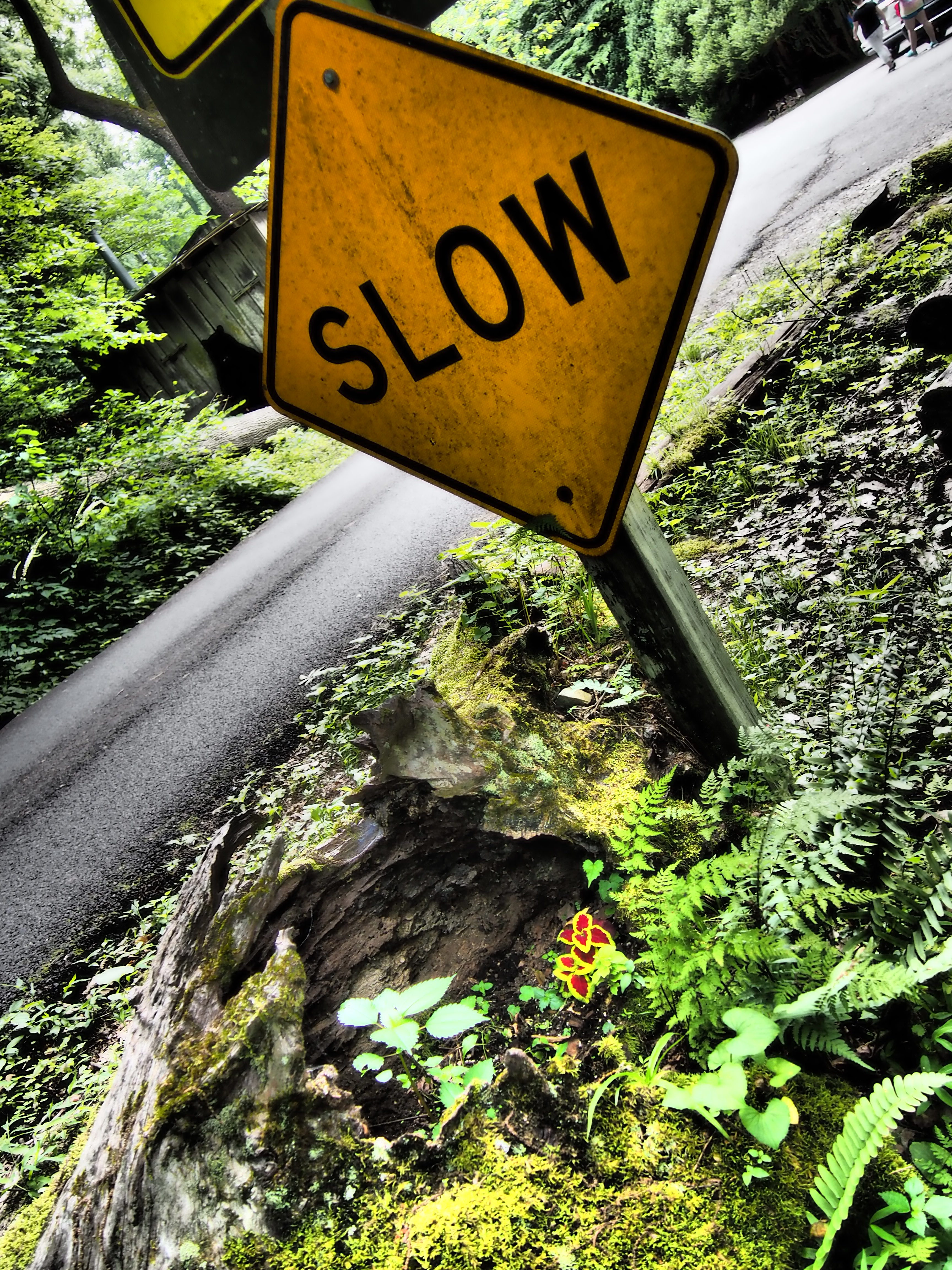 As much as I hate to say this, it’s time we get smart and vet our memberships to Facebook Genealogy Groups. Just this morning I was scolded and publicly shamed in a very popular Facebook Genealogy group that contains over 16,000 members. My crime? Asking a poster (within a comment string) to consider sharing her state specific story with our state historical society publication – which happens to be a free educational resource for all – created and hosted by a government archival/artifact repository. Good grief!
As much as I hate to say this, it’s time we get smart and vet our memberships to Facebook Genealogy Groups. Just this morning I was scolded and publicly shamed in a very popular Facebook Genealogy group that contains over 16,000 members. My crime? Asking a poster (within a comment string) to consider sharing her state specific story with our state historical society publication – which happens to be a free educational resource for all – created and hosted by a government archival/artifact repository. Good grief!
The ironic point of this interaction, is that I always double check the group rules before posting or commenting – because every group can be VERY different. In this case, they only prohibited advertising services or products “for sell” [for sale]. As a non-profit, free educational resource, I was in no way soliciting anything that resulted in a profit – nor was I even advertising – it was a suggestion at the bottom of a very long comment string.
But here’s how they handled this situation. They removed my comment and then made a new post calling me out for this shameful behavior. Most group admins will take down a comment or post and quietly message the offender – unless this was a repeat offense, or a problem they keep having with many others. Nope. They instead chose to publicly rebuke my “offense” when in fact, I hadn’t violated anyone’s rules. The admin of the day stated that I should have known better, and continued to lecture that I was ignorant of standard “netiquette”.
 Unfortunately, my apology and clarification that this was not in their rules (because, you know, I researched their own rules list) simply fanned the flames, and it was apparent that, just like Caesar, the offense was declared, judgement and punishment were handed out and no words of defence would be accepted. So let it be written, so let it be done! Sorry folks, that is an environment that is contrary to the world of kindness I know to be genealogy.
Unfortunately, my apology and clarification that this was not in their rules (because, you know, I researched their own rules list) simply fanned the flames, and it was apparent that, just like Caesar, the offense was declared, judgement and punishment were handed out and no words of defence would be accepted. So let it be written, so let it be done! Sorry folks, that is an environment that is contrary to the world of kindness I know to be genealogy.
Many of you have witnessed this scenario before as well as become concerned over Facebook abuses in all forms reported in the news. In fact, several users have already left Facebook due to these reports. Over the years, I have embraced Facebook due to the engaging groups of collective advice and dialog. Many of the groups are wonderful! However, I have also witnessed conversations turn ugly in the blink of an eye. Facebook is a place where many people feel it’s OK to be hateful to one another, bully and insult one another, and demonstrate the very worst of humanity.
But let’s take a closer look at genealogy groups in particular.
The good:
 The best genealogy groups are usually topic or location specific. Local genealogy groups by state or county are research/dialog rock stars! They provide invaluable insights to those of us who are out of town – a true “pay-it-forward” kindness in the form of “boots on the ground” volunteers. It is apparent that they love their community and want to share the historical/genealogical love. I have been the recipient of many acts of genealogy kindness from these research angels, which demonstrates the goodness and kindness of the genealogy community, and why Facebook is still a place to get some rock-solid advice and assistance.
The best genealogy groups are usually topic or location specific. Local genealogy groups by state or county are research/dialog rock stars! They provide invaluable insights to those of us who are out of town – a true “pay-it-forward” kindness in the form of “boots on the ground” volunteers. It is apparent that they love their community and want to share the historical/genealogical love. I have been the recipient of many acts of genealogy kindness from these research angels, which demonstrates the goodness and kindness of the genealogy community, and why Facebook is still a place to get some rock-solid advice and assistance.
The not so good:
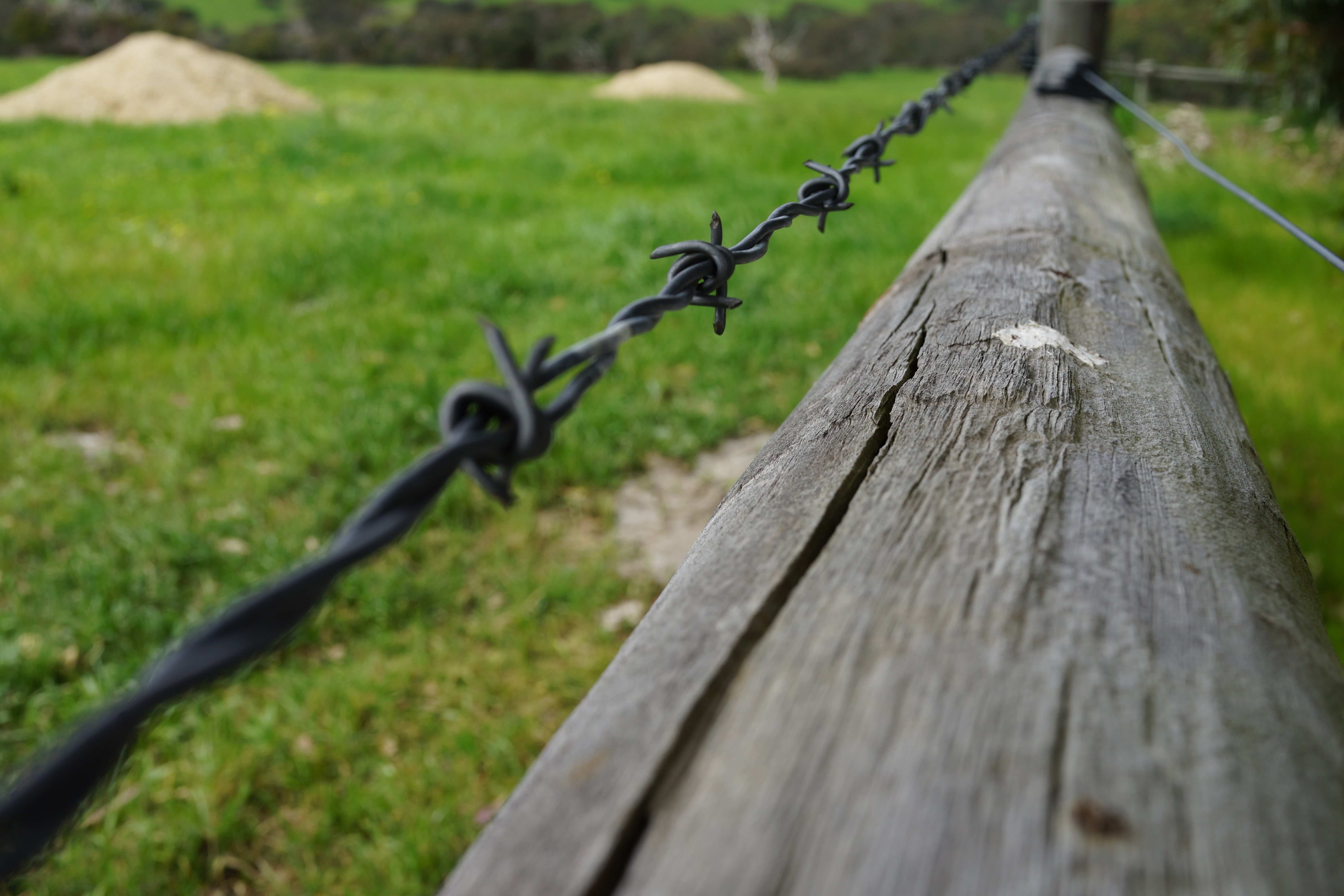 The least helpful groups out there are usually too broad in focus to provide much more than cute memes and a burgoo of stories that might be fun, or might be silly, but do not provide much educational advice or meaningful dialog. Their topics are so various that following along becomes mentally exhausting, with little educational meat to show for your efforts. In worst case scenarios, the atmosphere turns toxic, with rampant criticism, insults, shaming, bullying, which often begins with or is encouraged by the behavior of the admins.
The least helpful groups out there are usually too broad in focus to provide much more than cute memes and a burgoo of stories that might be fun, or might be silly, but do not provide much educational advice or meaningful dialog. Their topics are so various that following along becomes mentally exhausting, with little educational meat to show for your efforts. In worst case scenarios, the atmosphere turns toxic, with rampant criticism, insults, shaming, bullying, which often begins with or is encouraged by the behavior of the admins.
Lessons & Takeaways – please evaluate your membership in FB genealogy groups based on these helpful Tips:
 When you become a new member, take a really close look around before engaging with the other members. Read all group policies or rules FIRST before commenting OR posting ANYTHING! Also, be sure to read the comments below these rules – they can be very telling. In the group that bullied me this morning, there was a telltale comment from another victim that had simply posted a small story about a relative that had died, which included a link to the obit. As she was grieving, she didn’t notice the link included a Go Fund Me section for family assistance. She was apologetic, but it was clear from the conversation that the admins would not back down on their rebuke. As she was clearly sad after losing a loved one, this admin behavior was particularly mean spirited. Of course, I didn’t see this until I started poking around after my own rebuke.
When you become a new member, take a really close look around before engaging with the other members. Read all group policies or rules FIRST before commenting OR posting ANYTHING! Also, be sure to read the comments below these rules – they can be very telling. In the group that bullied me this morning, there was a telltale comment from another victim that had simply posted a small story about a relative that had died, which included a link to the obit. As she was grieving, she didn’t notice the link included a Go Fund Me section for family assistance. She was apologetic, but it was clear from the conversation that the admins would not back down on their rebuke. As she was clearly sad after losing a loved one, this admin behavior was particularly mean spirited. Of course, I didn’t see this until I started poking around after my own rebuke.- READ THE ‘ABOUT’ PAGE! This is vital to getting a feel for the intent behind those who created or admin the group! Unfortunately, once I began digging into the About section, I discovered an advertisement about their new magazine they created as an offshoot of the group. Which leads me to believe they were not upset that I broke an invisible rule – but rather upset that my comment pointed Kentucky researchers to a free educational publication. They clearly viewed my post as content competition, and hid their bullying behind tech shaming and absolutism.
 Go over the admin list, their genealogy backgrounds, and their past interactions among the group. I have been a FB group admin many times in the past, and I can tell you it’s a thankless job with many hours spent wrangling trolls and herding cats. But if the admins have no genealogical educational/professional background and they are truly hobbyists that do not help educate others, walk away quickly or their rule police will haul you away at any perceived infraction! Also a red flag: When they declare the group to be a “drama free zone” they’re not talking about themselves – just you! The admins can be as dramatic as they like, and you have no power against it – so again, leave quickly!
Go over the admin list, their genealogy backgrounds, and their past interactions among the group. I have been a FB group admin many times in the past, and I can tell you it’s a thankless job with many hours spent wrangling trolls and herding cats. But if the admins have no genealogical educational/professional background and they are truly hobbyists that do not help educate others, walk away quickly or their rule police will haul you away at any perceived infraction! Also a red flag: When they declare the group to be a “drama free zone” they’re not talking about themselves – just you! The admins can be as dramatic as they like, and you have no power against it – so again, leave quickly!- Review previous conversations – is the group helpful, encouraging, educational, and welcoming – or are they simply opinionated without educational substance? Might I remind everyone that false trees and unsourced genealogy is the modern scourge of genealogy – if we don’t surround ourselves with educational groups, we don’t grow. And with the fictional trees that have flooded online databases, these types of groups can contribute to the problem with their proliferation of unsourced advice.
 Bye, Felicia! How many have seen this dismissal used within FB Group conversations? You will often see this used to dismiss anyone who chooses to disagree with the collective, or more importantly, the admins. The person who dares disagree, and voices their contradictory opinion is dismissed by the group as irrelevant – either just before they leave the group willingly, or are ejected. Make no mistake, this too is a form of bullying. It has become all too common among the hive mind of FB Groups. Whatever you do, do not upset the admins or the most powerful group participants! They surround the lone voice in order to silence it – rejoicing in their victory once the voice has been removed. Just like the Borg mind – Resistance is futile. The moral of this point in the story: once the group dislikes your contradictory stance, just leave. They aren’t worth your time – find a welcoming place that fosters a healthy collaborative environment. Oh, and just a reminder that healthy dialog includes diverse opinions.
Bye, Felicia! How many have seen this dismissal used within FB Group conversations? You will often see this used to dismiss anyone who chooses to disagree with the collective, or more importantly, the admins. The person who dares disagree, and voices their contradictory opinion is dismissed by the group as irrelevant – either just before they leave the group willingly, or are ejected. Make no mistake, this too is a form of bullying. It has become all too common among the hive mind of FB Groups. Whatever you do, do not upset the admins or the most powerful group participants! They surround the lone voice in order to silence it – rejoicing in their victory once the voice has been removed. Just like the Borg mind – Resistance is futile. The moral of this point in the story: once the group dislikes your contradictory stance, just leave. They aren’t worth your time – find a welcoming place that fosters a healthy collaborative environment. Oh, and just a reminder that healthy dialog includes diverse opinions.- And as a supplemental point to the above, defending your actions or even trying to apologize will not be of any help. Admins who enjoy the power too much will not listen and would love nothing more than to vote you off the island, regardless of whether your words make common sense. I had one person remove a post in an abandoned historic structures group because it listed the address, which was against their rules – but the property was for sale! The realtor wanted the address publicized to drum up interest and save the property from ruin! Despite this reasonable exception, the admin loved their power more than saving a historic property, sending a clear signal that they would never listen to reason beyond their own, so I just quietly left the group.
In Conclusion:
 I know this post will not be popular – as it reminds us that even roses have thorns – and ignoring their presence does not prevent us from getting stuck. It is high time we recognize the other heinous part of Facebook beyond the privacy breaches: the bullying and abuse of power to silence diverse thought. More importantly, when the genealogical community has a hard time being civil to one another in this environment, it’s time to reevaluate our participation! Life is too short and the research too long to treat others in this fashion. There are so many wonderful Facebook Genealogy Groups out there – but proceed with caution and BE SELECTIVE – be kind, and if they throw you to the wolves, dust yourself off and find a healthy, welcoming genealogy space.
I know this post will not be popular – as it reminds us that even roses have thorns – and ignoring their presence does not prevent us from getting stuck. It is high time we recognize the other heinous part of Facebook beyond the privacy breaches: the bullying and abuse of power to silence diverse thought. More importantly, when the genealogical community has a hard time being civil to one another in this environment, it’s time to reevaluate our participation! Life is too short and the research too long to treat others in this fashion. There are so many wonderful Facebook Genealogy Groups out there – but proceed with caution and BE SELECTIVE – be kind, and if they throw you to the wolves, dust yourself off and find a healthy, welcoming genealogy space.
Happy Researching, Y’all!

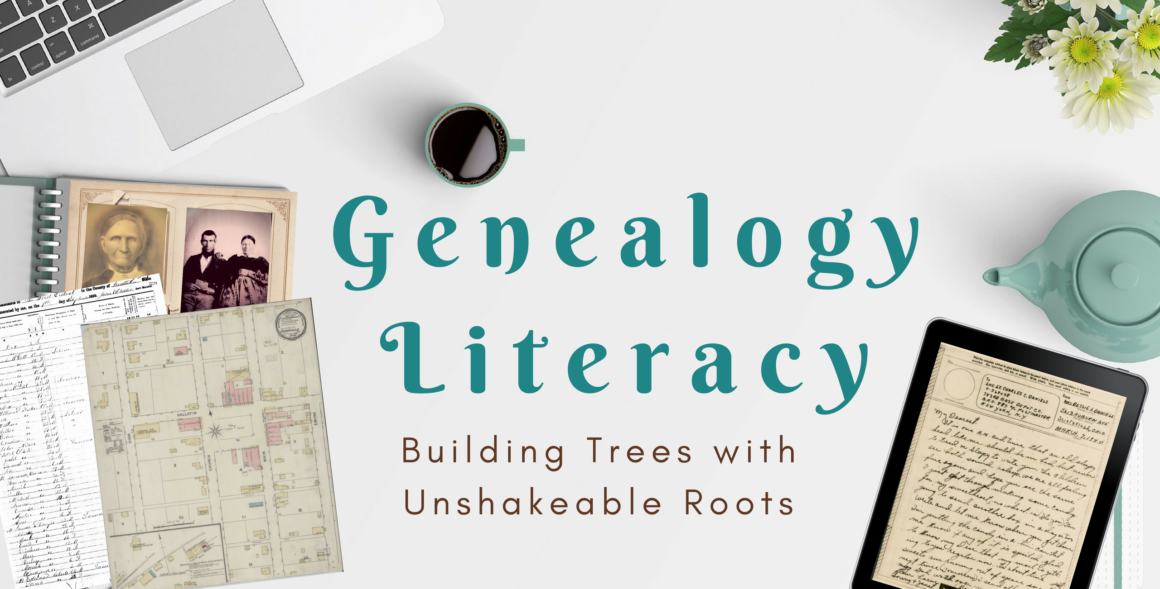
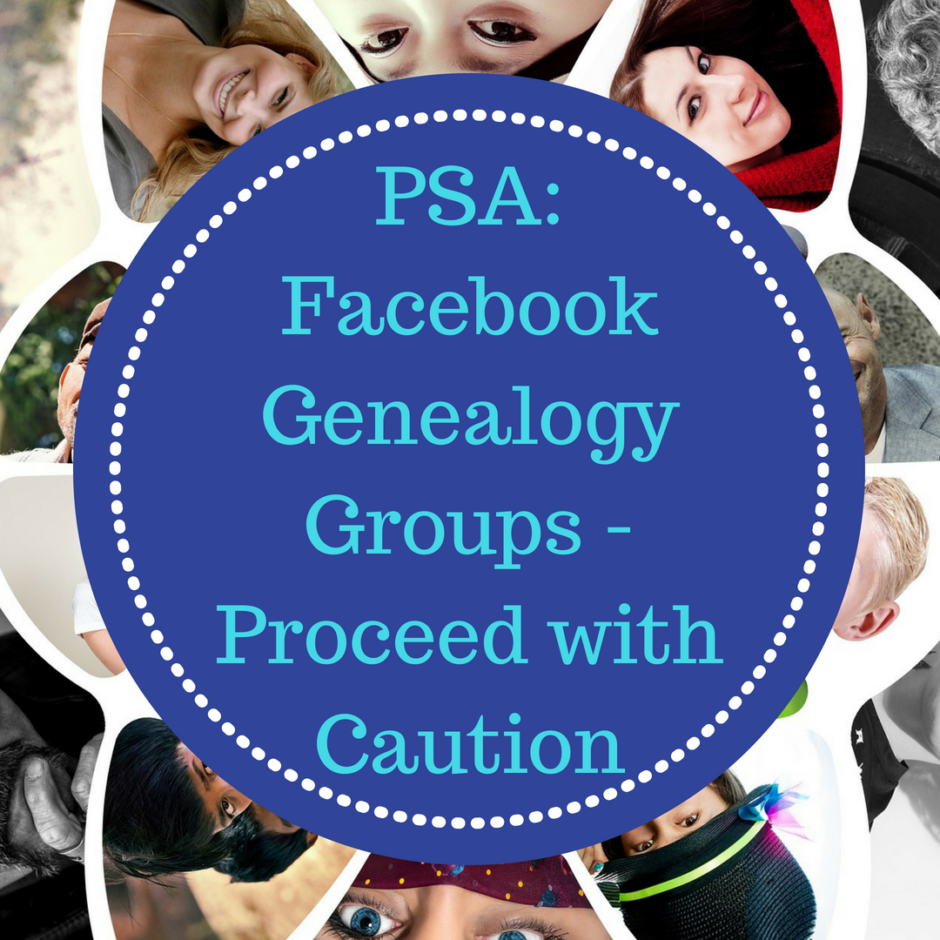
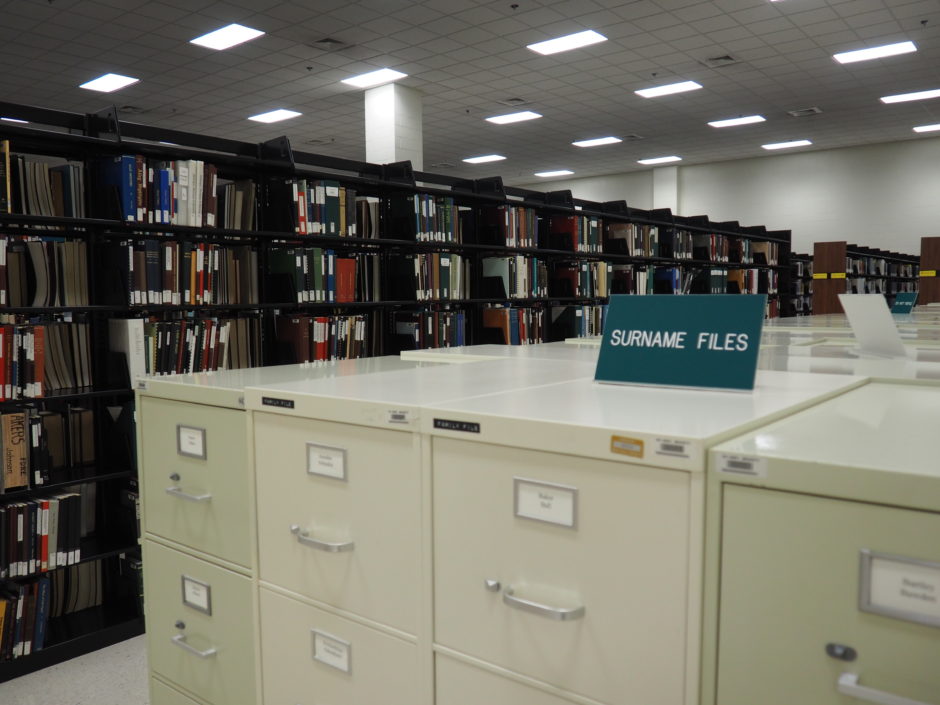
 I am writing this post with gritted teeth and a fake smile upon my lips – retaining a professional demeanor in the face of such a dangerous fallacy can be almost impossible. But I promised you undiluted genealogy – and here comes test case number 1! Quick – go get a cup of tea before reading further!
I am writing this post with gritted teeth and a fake smile upon my lips – retaining a professional demeanor in the face of such a dangerous fallacy can be almost impossible. But I promised you undiluted genealogy – and here comes test case number 1! Quick – go get a cup of tea before reading further! I was recently told a scary story (just in time for Halloween) about the construction of a new county courthouse – the locals in charge of building said courthouse, decided to opt for a closet sized research table to access records, because “No one conducts onsite research anymore – it’s all available on Ancestry!”
I was recently told a scary story (just in time for Halloween) about the construction of a new county courthouse – the locals in charge of building said courthouse, decided to opt for a closet sized research table to access records, because “No one conducts onsite research anymore – it’s all available on Ancestry!”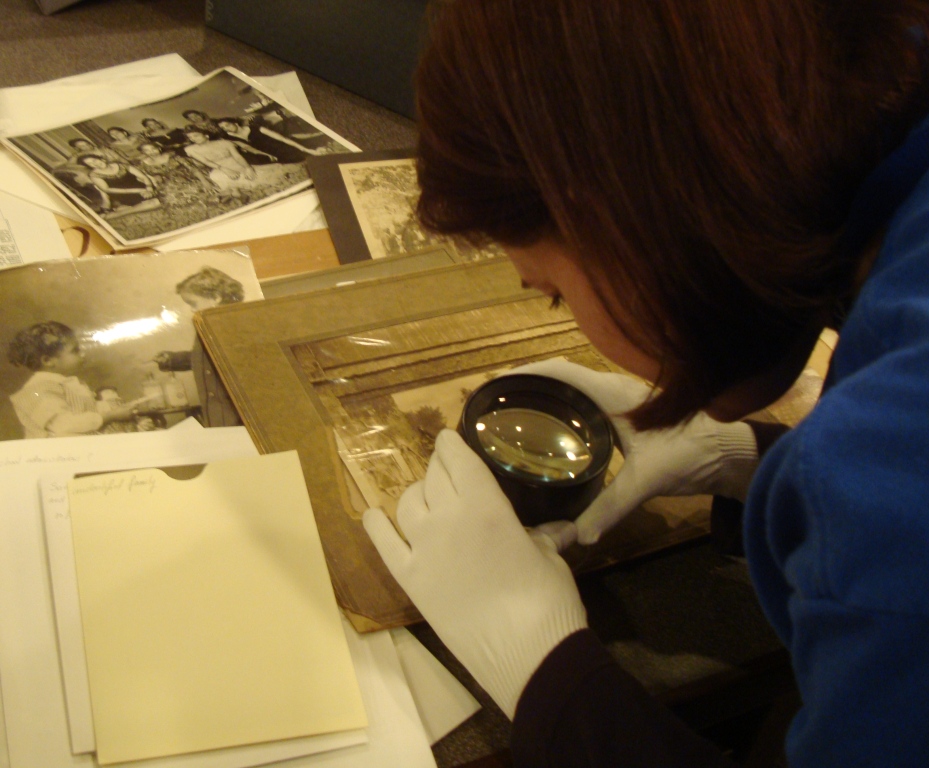
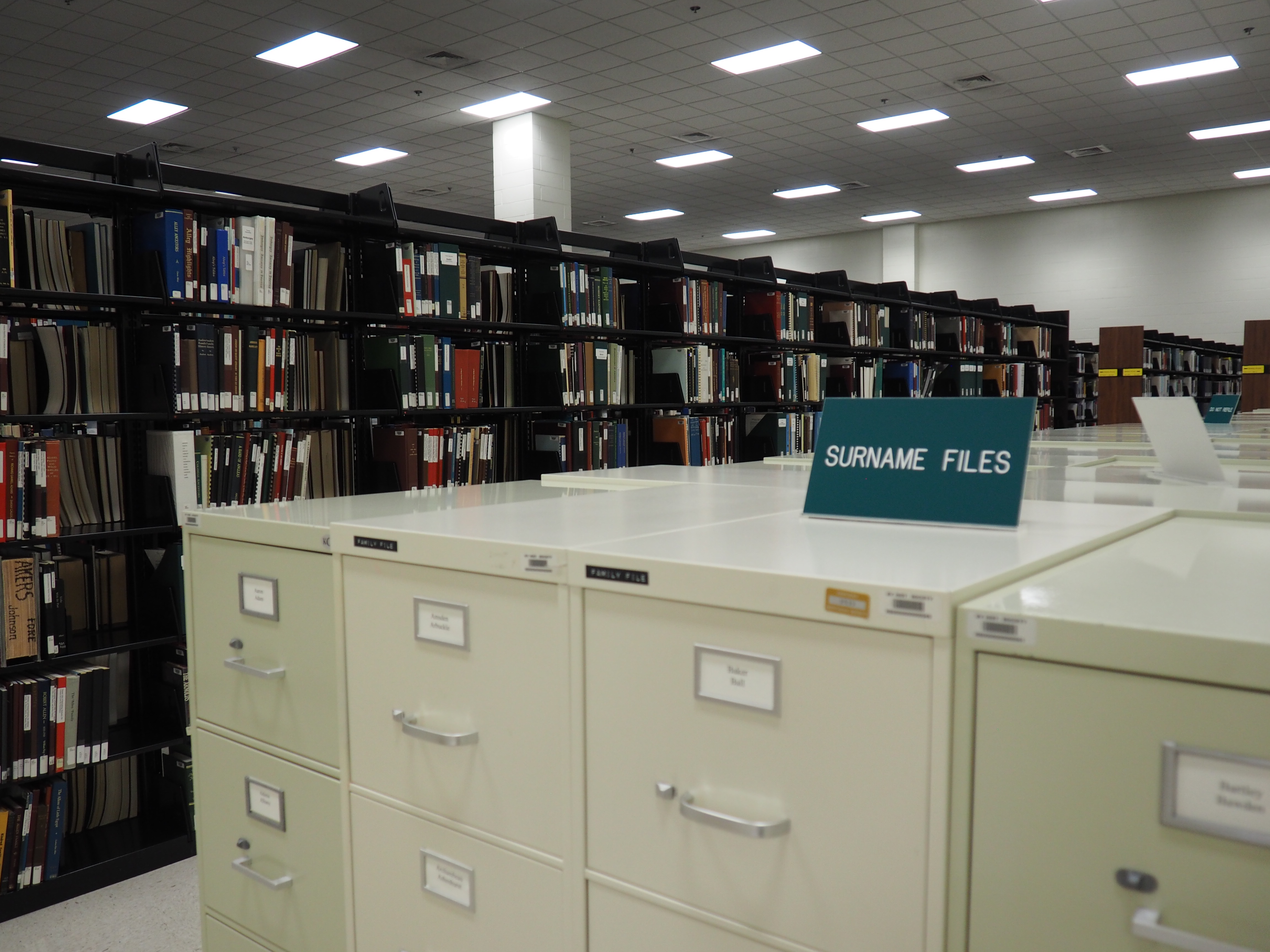
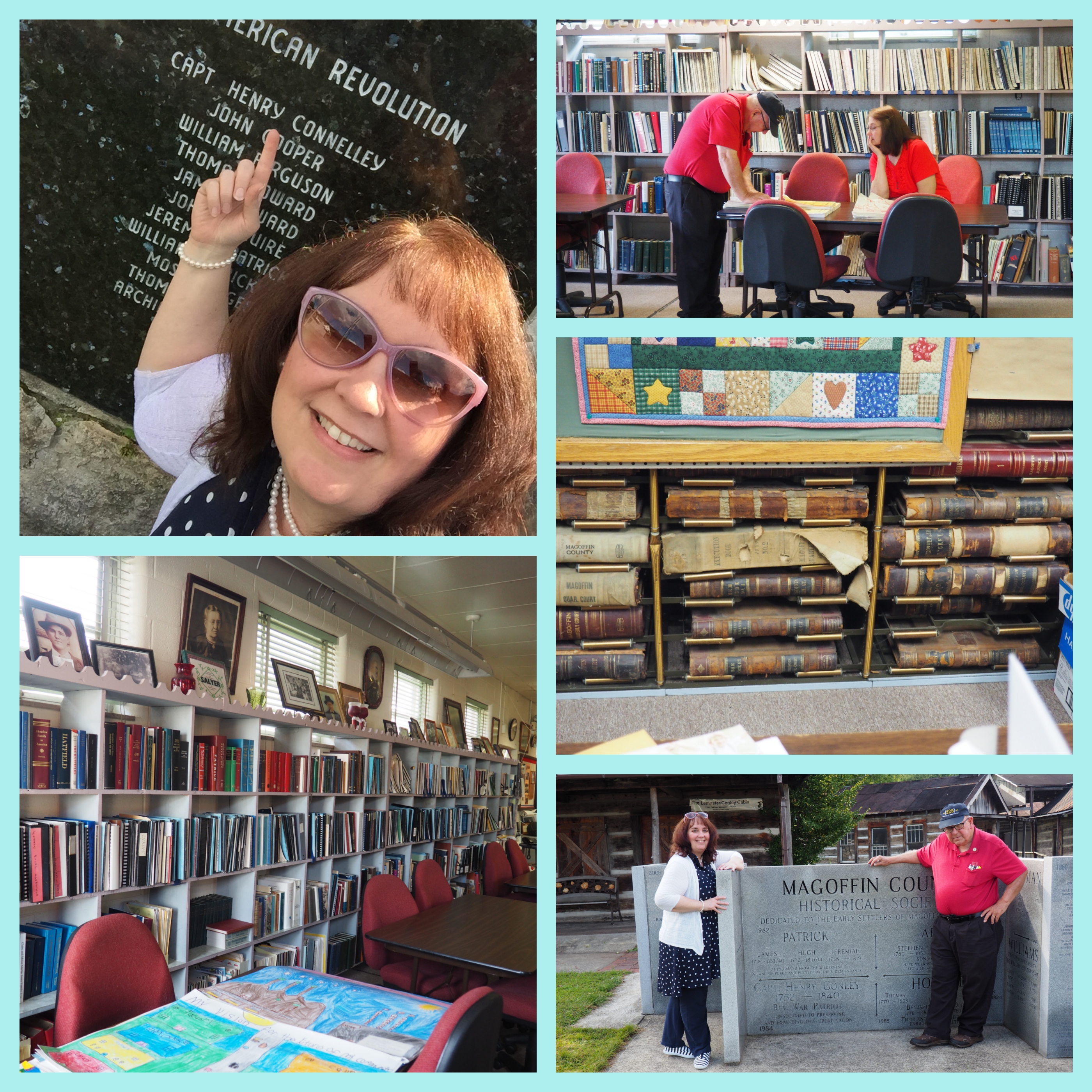 In short – always think of research as a multi-dimensional process. We are fortunate enough to have wonderful records at the tip of our fingers via super digitization efforts of many – but our research should NEVER stop there! Our storehouses of history contain the family records we need: Bible records, genealogy research files, correspondence, diaries, photos, school and Church records, etc. A fundamental principle of the
In short – always think of research as a multi-dimensional process. We are fortunate enough to have wonderful records at the tip of our fingers via super digitization efforts of many – but our research should NEVER stop there! Our storehouses of history contain the family records we need: Bible records, genealogy research files, correspondence, diaries, photos, school and Church records, etc. A fundamental principle of the